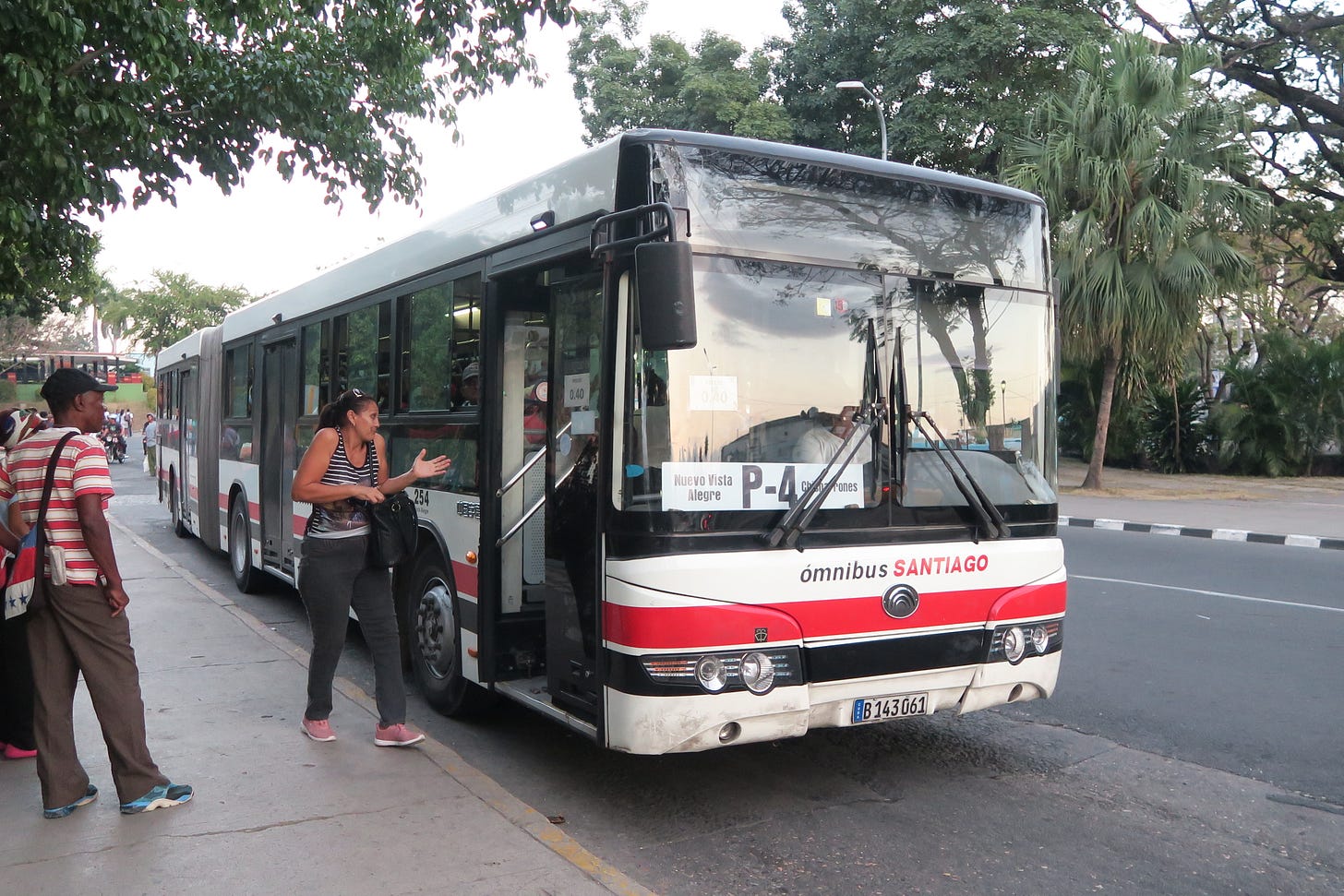Happy almost Lunar New Year and welcome to the second issue of Urbanism Now, our weekly newsletter curated with brief and insightful urban ideas from around the world to inspire action where you (c)are.
Let us introduce ourselves again: Maria Paula Moreno Vivas is an urbanist specializing in housing and land use. Ray Berger is a software engineer turned urbanist focused on mobility, technology, and food systems.
Let's get started:
Caltrain's new electric trains are surpassing expectations, with regenerative braking systems generating about 23% of the energy consumed by the rail system and sending it back to the electric grid, officials announced.
Zoe Ward, a real estate expert in Japan, shared about an apartment building that leverages a minpaku license to offer rent discounts for tenants away on business, blending long-term and short-term stays in a flex scheme that’s 50% pricier than standard leases.
Cali, Colombia is redefining public space design in self-built neighborhoods. Ortiz et al. examine how planners can use participatory design and an intersectional approach to foster equitable urban spaces and advance social justice.
“How does transport scarcity shape women’s lives in Santiago de Cuba?” Maciejewska and Kębłowski's paper, uncovers how material shortages – fuel, vehicles, and spare parts – turn daily mobility into a demanding struggle.
Sarah Risser reflects on her year placing signs at every fatal crash site in Portland, Oregon (USA) to honor victims and highlight the city’s road safety crisis.
Joseph Cox, a reporter at the journalism startup 404 Media, investigated a terrifying tool that can be used by police or stalkers to determine where a photo was taken by the features in the photo itself. One more thing for activists to be concerned about.
“What Happened to Hanging Out on the Street?” Mobility expert David Zipper walks us through a new study of NYC, Boston and Philadelphia.
Trying to find a community on Bluesky? Anine Hartmann and Cathy Tuttle put together an inspiring list of 100 women in urbanism who are shaping the future of our cities – definitely worth a follow!
Enough reading, here are some videos:
“Can the Right Do Urbanism Right?” In this video, Hannah Kosoff explores how urban planning can address challenges like rising home prices and social disunity by promoting walkable, mixed-use communities that align with both conservative and progressive values, offering solutions to economic, social, and environmental issues.
Video journalist Johnny Harris investigated “Neom and Its Impacts on the Bedouin and the Desert” (2024). However, he neglected to address the reports of 21,000 laborers killed and 100,000 others reported missing during the project’s construction.
To wrap up the main content on a lighter note, check out this 2024 Instagram reel by Macy Gilliam that playfully critiques the growing trend of oversized cars.
Looking for a job:
Token Transit, which builds a public transportation fare distribution, collection, and management system, is hiring a Customer Success Manager. Fully remote or based in San Francisco. $158,000 salary.
Events and deadlines:
The Sheffield Urbanism Winter Programme (UK), running Jan. 28-30, will feature hybrid events including workshops, PhD work-in-progress sessions, and guest talks, alongside a book launch and discussions on global urban research and future urban challenges.
“Grassroots innovations: How to move to scale?” Grassroots organizations are pivotal in driving sustainable, community-led innovations for marginalized groups. A webinar on Jan. 29, co-hosted by IHS (Institute for Housing and Urban Development Studies), UN-Habitat, and partners, will explore how to scale and sustain these efforts through localization, co-creation, and inclusive partnerships.
The Urban Innovators Academy in Cyprus is accepting applications through Jan. 30 for its five-day sustainable mobility training program for undergraduate students.
TerraViva has announced the fifth edition of its “TACTICAL URBANISM NOW!” architecture competition, inviting participants to design short-term, cost-effective interventions that can serve as catalysts for broader transformations. Up to €5,000 in prizes. Early registration is 15% off until Jan. 31.
The first International Forum, “Land is Life: Alternatives to Land Grabbing and Dispossession”, will include a session examining global land grabbing and its impacts in Puerto Rico, focusing on privatization, land concentration, and neoliberal policies affecting communities worldwide. Feb. 4.
The Robert Wood Johnson Foundation is offering 10 grants of $250,000 to U.S. organizations and communities working to rethink land use and zoning as tools for promoting health equity. Applications are due by Feb. 6.
Are you considering a master’s in urban studies? The Master of Urban Studies (MUS) program, jointly offered by Vrije Universiteit Brussel (VUB) and Université libre de Bruxelles (ULB), has upcoming application deadlines. Non-EU students must apply by Feb. 7, while EU students have until May 7.
The Cities & Health editorial team, in partnership with the International Society for Urban Health (ISUH), invites contributions for a special issue on "Urban Environments at the Frontline of Climate Breakdown and Health," focusing on climate resilience, health integration in urban policies, and the impacts of infrastructure and extreme weather on equity. Submissions are due by Feb. 28.
What did you love? What did we miss? Let us know in the comments below.
As always, please share with a friend!
A Yutong bus in Santiago de Cuba, 2020. Source: Yutongcuba.jpg






Go caltrain! Unrelated: I appreciate how this newsletter highlights planning/trainsit news from all across the globe, including countries that don't often get time in the spotlight!